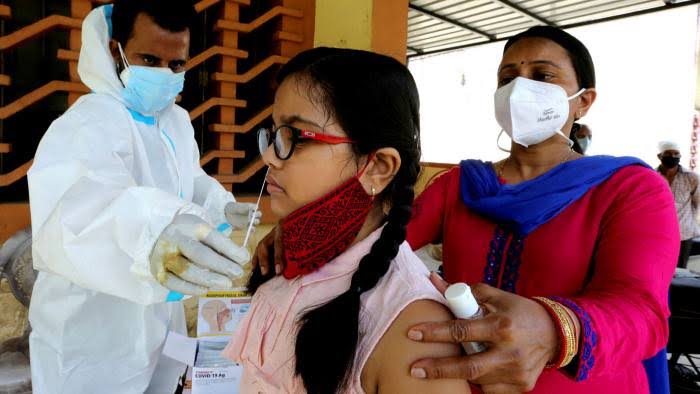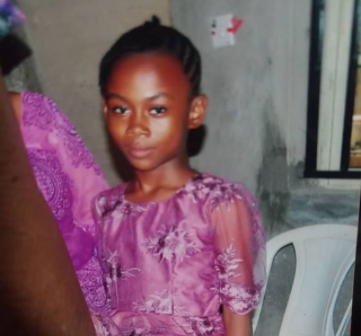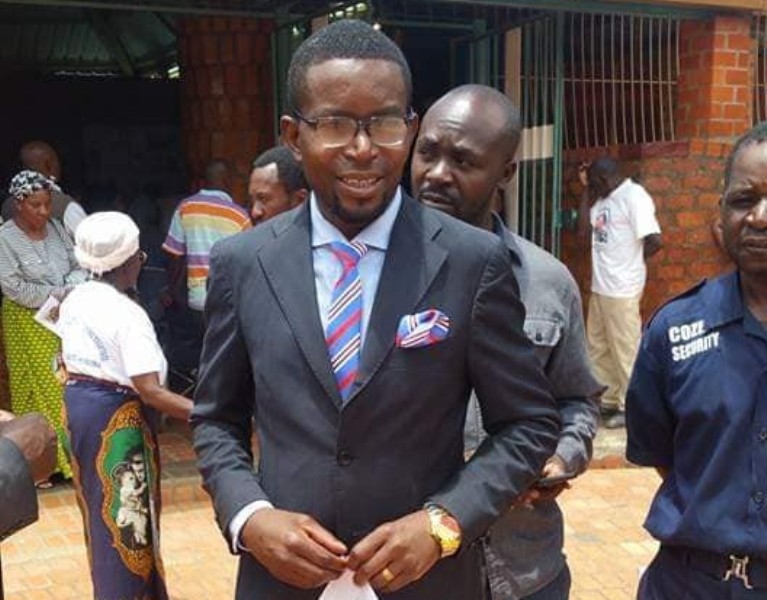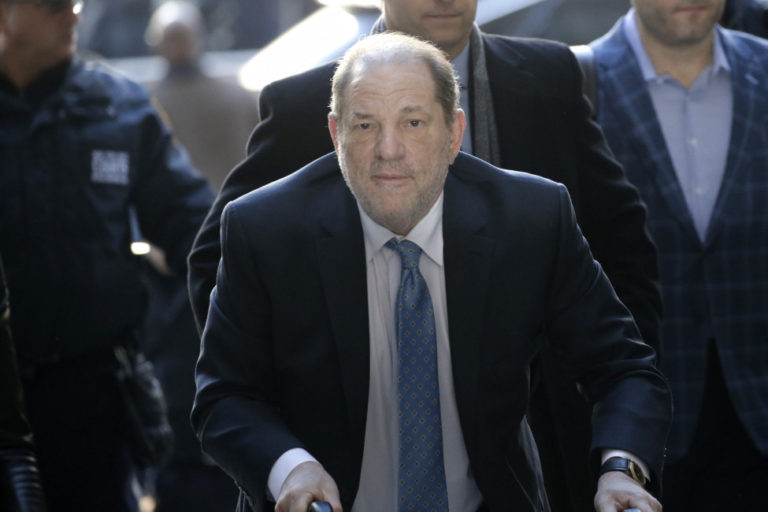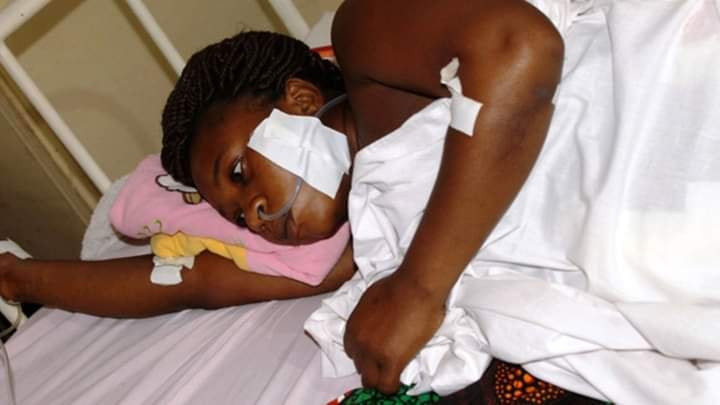news.phxfeeds.com
India’s coronavirus death toll passes 100,000 with no sign of an end
India’s Coronavirus death toll surpasses 100,000, only the third country in the world to reach that bleak milestone, after the U.S. and Brazil
India’s death toll from the novel coronavirus rose past 100,000 on Saturday, only the third country in the world to reach that bleak milestone, after the U.S. and Brazil, and its epidemic shows no sign of abating.
Total deaths rose to 100,842, the health ministry said, while the tally of infections climbed to 6.47 million after a daily increase in cases of 79,476.
India now has the highest rate of daily increase in infections in the world.
Prime Minister Narendra Modi’s government, faced with a collapsing economy after imposing a tough lockdown to try to stem the spread of the virus in late March, is pushing ahead with a full opening of the country.
Cinemas were allowed to re-open at half capacity this week and authorities can decide to re-open schools from the middle of this month.
Heading into winter and the holiday season, including the Hindu festival of Diwali next month, the world’s second most populous country could see a jump in cases, health experts said.
“We have seen some recent slowdown of the virus curve but this may be a local peak, there may be another coming,” said Bhramar Mukherjee, a professor of biostatistics and epidemiology at the University of Michigan.
She said data showed a little over 7 per cent of the population of 1.3 billion had been exposed to the virus, meaning India was still far from any sort of herd immunity.
The number of cases could rise to 12.2 million by the end of the year but the rate of spread would depend on how effective measures such as social distancing were, she said.
“So it will continue like a slow burning coil, that is my hope, and we have to play the long game to stop it from being a wildfire.”
The United States, Brazil and India together account for nearly 45 per cent of all COVID-19 deaths globally.
Death rates in India, however, have been significantly lower than in those other two countries, raising questions about the accuracy of its data.
India has, on average, less than one death from the disease for every 10,000 people while the U.S. and Brazil have seen six deaths per 10,000.
U.S. President Donald Trump, defending his administration’s handling of the pandemic in this week’s presidential debate, said countries such as India were under-reporting deaths.
Shashank Tripathi, of the Centre for Infectious Disease Research at the Indian Institute of Science in Bengaluru, acknowledged there could be problems with the data though India’s young population might help explain the lower death rate.
“In India, even without a pandemic, all deaths are not properly registered,” Tripathi said.
“I’m not very confident that the mortality rates reflect the right numbers, though the younger demographic has given us some advantage.”
Representatives of the health ministry and the Indian Council of Medical Research did not immediately respond to calls or emails for comment.
Health experts said there could be greater immunity in India because of the high incidence of infectious diseases such as tuberculosis.
Nearly 1,200 people in India die of TB every day, roughly the same as deaths from COVID-19.
Kamakshi Bhate, professor emeritus of community medicine at the King Edward Memorial Hospital in Mumbai, said she didn’t expect India’s death toll to surge dramatically even as the virus spreads into dense population clusters and across the countryside.
“People were expecting that entire slums would get wiped out but it didn’t happen that way. We have our own resistance,” she said. (Reuters/NAN)
#JusticeforFavour: 13 year old girl allegedly raped to death in Lagos
The police in Lagos state have arrested a man for allegedly raping 13-year-old girl, Favour Okechukwu, pictured above, to death in the Ejigbo area of the state on Wednesday, September 30.
According to a statement released by the spokesperson of the state police command, SP Olumuyiwa Adejobi, Favour was sent on an errand by her mother to go and buy a carton of Gala for her at Olanrewaju street, Ejigbo at about 8.30pm.
”When Favor did not return on time, a search party was raised to look for her, till when her father came back from work and himself started looking for the girl. Later information got to them that a girl had been raped to death at No.4, Olanrewaju street Ejigbo. On getting there, the body of Favor Okechukwu was found dead in a room that belongs to one Ajom Brimcewil Tabi at No.4, Olanrewaju street, Ejigbo, Lagos. The body was found stark naked with blood flowing out of her private part. ” Adejobi said
The spokesperson added that the said Brimcewil Tabi has been arrested and is currently in detention. He stated that the state Commissioner of police, Hakeem Odumosu, has ordered a thorough Investigation into the case.
Meanwhile, actress Hilda Dokubu has taken to social media to demanded justice for Favour. A post shared by her on her IG page reads
”On the 30th Sept 2020, about 3pm, Favour was gang-raped to death around Ejigbo area, Lagos State. She would have been 12 years on the 21st October.
On the day Favour was raped, she was running errands for her nursing mother. Upon gang-raping her to a state of unconsciousness, the boys engaged a quack nurse to check her. @wrahpnigeria led @actionaidnigeria to meet with her parents today.
Whist we cannot confirm if the nurse administered any treatment on her, @ActionAidNigeria will ensure the quack nurse, the young men and all others involved in this dastard act are brought to book. We will ensure #Justice4Favour.
Our daughters MUST feel safe to walk on the street. @actionaidnigeria will continue to work with relevant stakeholders to make our cities, our nation safe for women and girls.
#Justice4Favour #SafeCities #EndRape #StandToEndRape
What is all this? Why? why? why?
I promised myself to stay extremely joyful the rest of the year, especially this month of my birth! But this is so depressing! This is deep seated wickedness!
I know why I am tagged on this post and yes we all need to stand up against RAPE and all forms of gender based violence and abuse
They must pay for the gruesome murder of this child.
I join @Actionaid in the call for #justiceforfavour”
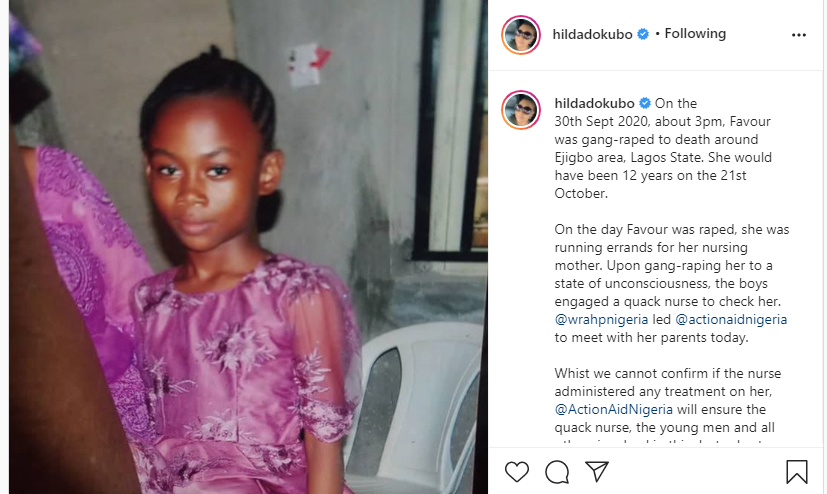
“She broke my head with bottle and threatened to kill me” – Woman accused of slashing her stepdaughter’s face with razor blade in Delta tells her side of the story
A woman who was accused of slashing her step daughter’s face with razor blade in Warri, Delta State, shared her own side of the story on Thursday, October 1.
It was gathered that the incident happened few days ago at N0 10 Okoro Close in Ugborikoko, Warri South. The step mother is said to be married to the victim’s father for many years without a child.

According to a report posted by a Facebook page, Warri Akproko, the woman allegedly attacked the victim identified as Mary and slashed her face with razor blade during a domestic disagreement. Mary was rushed to Island Hospital located along Ugborikoko road by good Samaritans.

However, speaking to the online news portal on Thursday, the step mother narrated what led to the incident and also attached photos showing injuries she allegedly sustained during the fiight.
She claimed that Mary insulted her, called her a witch, barren and threatened to kill her. In the cause of the heated argument, Mary allegedly picked a bottle and broke it on her head. She retaliated by slashing Mary’s face with a razor blade. Read below:

“The story happen like this, in the afternoon she Waka come front of the door begin snap pictures naim I come tell her say comot your hand, as she comot her hand, naim I come spit, as I spit naim she come hiss naim I come tell her say Mary na me you dey hiss for? Naim she come start to dey insult me say I be wicked woman, I be winch, naim me come tell her say watin I do you? She say she go kill me, naim me come tell her say wey you kill me you go come marry your papa?
“Naim she say yes she go marry her papa if it’s possible for her. Naim I come tell her say she no get power to kill me because no be you be my God, she come tell me say I never born, naim me come tell her say well no be you be God, God wey create everybody give everybody children to born, naim me come tell her say as she talk say I never born so, make she remember say she be woman oh and watin I face she go face am also but I get the belief say God go bless me with my own pikin because no be you be my creator.
“Naim she come start to insult me say I be failure naim me come tell her say I no be failure rather na she be failour because her mates dey their husbands house, before I look naim she slap me, naim I say the length wey you Don go so too much I come hold her say why you slap me but before I know she don use bottle break my head and shook my hand I come say I no go leave her go free naim I use the razor blade wey I take dey sew clothes take tear her face before one of her friend come rush her go hospital for treatment.
“The following day, she come bring police come arrest me, When we reach station, she judge say I wan kill her meanwhile na she Wan kill me because she say she no dey happy as her papa marry me so and I nor know watin I dgo her because na me train her from small pikin na my hand she for grow go school do everything but as people never near my side of the story so, everybody come dey blame me naim I say make I come tell una my own side of the story.”

“I see myself in her, she’s my daughter” Kiddwaya’s mother hugs and kisses Erica; reveals she’s rooting for ‘KiddRica’ (video)
“I see myself in her, she’s my daughter” Kiddwaya’s mother hugs and kisses Erica; reveals she’s rooting for ‘KiddRica’ (video)
Kiddwaya’s mother, Susan Lulun Waya made an appearance at a meet and greet event organized for Erica in Abuja.
Speaking at the event on Friday, October 2, Susan Waya said she was there to welcome the Elites – Erica’s fans – and to show support for Erica, who was her son Kiddwaya’s love interest in the Big Brother Naija house during the recently concluded season of the reality show.
Standing beside Erica, Susan Waya said: “I see myself in this little lady and I’m here to support her. I can’t replace her mother but she’s my daughter. And today, I want to confirm to you, I am KiddRica.”

KiddRica is a portmanteau of Kiddwaya and Erica’s names, and people rooting for them and their relationship refer to themselves as KiddRica shippers.
Kiddwaya’s mother’s revelation that she’s a KiddRica shipper elicited loud cheers from those present.
After her speech, she hugged and kissed Erica.

Watch the video below.
Zambian opposition leader asks government to ban Jehovah’s Witnesses
An opposition leader, Cozmo Mumba has called for the ban and deregistration of the Jehovah’s Witnesses in Zambia for being antagonistic with the laws of the land.
According to a statement issued to journalists, the National Revolution Party president said it is illogical to for the Church to continue existing in Zambia if it cannot allow its members to take part in civic and national matters such as singing of the National anthem and voting.
He adds that the Church has continued to defy the country’s Constitution by not allowing its members to register as voters and politicking among others arguing that yet they benefit from services the same constitution they disregard.
The NRP leader says people need to be patriotic and obey the laws of the land as they enjoy certain provisions of the Constitution.
“The same constitution they disregard and disrespect is the one that gives them rights to free movement, right to worship and belong to any religion of their choice, so why can’t they also follow the same constitution by voting? Is this now not playing double standards? They must be banned for insulting the same document that gives them rights!” Mumba charged.
Mumba has since called on the Ministries of Home and Religious Affairs to critically analyse the inefficiencies of the Jehovah’s Witnesses and eventually ban the church if it still maintains that its membership will not engage in civic and political matters.
As the country is implementing online voter registration exercise, the NRP leader urged the Jehovah’s Witnesses to own up, change its standing against civil matters and allow the members to register as voters for the 2021 elections and beyond.(lindaikejisblog)
Convicted rapist, Harvey Weinstein facing 6 new sexual assault charges in Los Angeles
Convicted rapist, Harvey Weinstein has been hit with six new counts of forcible sexual assault, the Los Angeles County District Attorney’s Office announced on Friday.
The disgraced film mogul, who is serving a 23-year prison sentence for rape, is accused of alleged LA attacks between 2004 and 2010.
The 68-year-old was charged with three additional forcible rape felonies and three forcible oral copulation charges stemming from alleged attacks between 2004 and 2010 in Beverly Hills. The new criminal complaint expands the LA case to a total of five victims, authorities said.
Weinstein is now facing a total of 11 counts of sexual assault in Los Angeles County involving five women.
If convicted as charged in Los Angeles, the once-powerful Hollywood mogul faces up to 140 years to life in state prison, according to Friday’s statement.
Los Angeles County District Attorney Jackie Lacey said the latest accusations helped prosecutors built a “compelling criminal case” against Weinstein.
“I am thankful to the first women who reported these crimes and whose courage have given strength to others to come forward,” Lacey said in a statement.
“The willingness of these latest victims to testify against a powerful man gives us the additional evidence we need to build a compelling criminal case,” she added.
Weinstein’s spokesman, Juda Engelmayer, told CNN on Friday that he could not comment on the additional charges until he learned more about them.
“Harvey Weinstein has always maintained that every one of his physical encounters throughout his entire life have been consensual. That hasn’t changed,” Engelmayer said. (lindaikejisblog)
Pedophile man gets 600 years imprisonment after forcing kids as young as 4 into making pornographic films
A Pedophile man has been sentenced to 600 years imprisonment after being found guilty of forcing kids as young as 4 years old into sex acts.
Matthew Miller, 32, was sentenced in Alabama after prosecutors said he forced kids into making child pornography.
According to prosecutors Miller’s acts “robbed children of their childhood.” as he made two kids under five make child porn.
According to a statement form the Department of Justice, Miller allegedly made the kids “engage in sexual explicit conduct for the purpose of producing a visual production of such conduct,” the statement said.
Police officials found 102 pornographic images that Miller made of the kids when they carried out a search warrant, the US Attorney’s Office of the Northern District of Alabama said in a statement.
Miller pled guilty to charges regarding the child porn images in October 2019 after facing 20 counts that were detailed in an indictment.
On Friday, October 2, Chief US District Judge L. Scott Coogler sentenced Miller to 7,200 months or 600 years in prison.
“The crimes for which Miller has admitted guilt are not only disturbing, they are sickening, and his actions robbed these children of their childhood,” FBI Special Agent in Charge Johnnie Sharp said in a statement.
He applauded the sentence, noting “Miller will spend the rest of his natural life behind prison bars.
lindaikejisblog
Mum abandons her 8 year old son at petrol station with note saying ‘take care of yourself’ because he was ‘too naughty’
A mum abandoned her eight-year-old son at a petrol station after claiming he was ‘too naughty’ to look after.
According to reports in Indonesia, the boy was found at the roadside in Pelalawan, Indonesia, clutching a note which said he was dumped because he was “causing problems” at home.
Passersby found the boy sitting at the petrol station late at night and took him to the next village before police were called to the crime scene, Gridstar reports.
A post on Twitter showed the boy wearing a red jacket, with a cut on his cheek and marks around his mouth.
Reports say his dad had been violent towards him because he was “naughty and often steals”, which forced his mum to abandon him.
According to Indonesian newspaper Kompas, the child’s parents have been called in by police for questioning to establish the circumstances behind the alleged abuse and abandonment.
The farewell letter said: “Child, forgive me. I am forced to leave you on the street as I’m no longer willing to see you suffer or tortured because of your mischief, every day you are causing problems.
“Forgive me, child. Take good care of yourself.”

Edy Haryanto, a Pangkalan Kuras Police spokesman, said: “Indeed, there are indications of violence against the child.
But we need to understand more about what happened.”
“We will gather all parties to find out the truth of this case.”
The police spokesman said the investigation into the incident is ongoing.
lindaikejisblog
Pregnant woman loses unborn baby after being shot in the stomach by unknown gunmen a week to delivery
A 26-year-old expectant mother, Denize Kabugho, lost her unborn baby after she was shot at by unknown assailants in Kirembe Cell, Kirembe Ward in Kasese Municipality, Uganda.
Mr Geoffrey Mumbere, Kabugho’s husband, who confirmed the incident on Saturday, October 3, said his wife was shot in the stomach by the gunmen on a motorcycle at around 8.30 pm on Tuesday when she had stepped out of the house to buy sugar from a nearby shop
According to Mr Mumbere, his wife was due to give birth in a week’s time but unfortunately lost the baby in the attack.
Linda Ikeji


